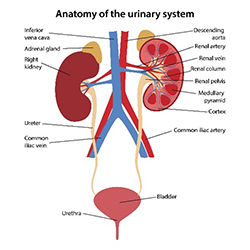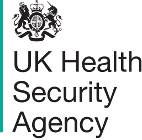Urinary tract infections (UTIs) affect the urinary tract, including the bladder, urethra, or kidneys.
In some people, if left untreated, UTIs can lead to severe infection and sepsis that can cause you to be very ill and in need in hospital treatment. 
As those over the age of 65 are at higher risk of complications, it is important for you to take steps to prevent UTIs and seek the appropriate treatment from a healthcare professional if you have symptoms.
Preventing a UTI
Whilst infection is sometimes unavoidable, staying well hydrated is key to keeping your body healthy and can help prevent you from getting a UTI, especially if you have repeated infections.
NHS guidance states people should aim to drink 6 to 8 cups or glasses of fluid a day. Water, milk and sugar-free drinks, including tea and coffee, all count.
Whilst hydration is an extremely important factor, so is ensuring you do not hold in your pee and that you go to the toilet as soon as possible when you need to. If you are having difficulties getting to the toilet or struggling with incontinence, we recommend that you speak to your doctor or nurse who will be able to help you manage this going forward.
Keeping on top of your personal hygiene can also help. Whilst we understand it may not always be possible, bathing or showering daily, particularly if you suffer from incontinence, is recommended.
Other steps such as keeping the genital area clean and dry; changing incontinence pads often; wiping front to back when you go to the toilet; and avoiding using scented soaps around the genital area, may help.
Washing the skin around the genitals with water before and after sex and going to pee as soon as possible after sex that may also reduce your chance of getting a UTI.
These proposed steps may seem like common sense but are extremely important in keeping you healthy.
Signs and symptoms
Following the above steps reduces your chances of getting an infection, but it is still vital to be able to identify the symptoms. They include:
- Needing to pee more frequently, suddenly, or more urgently than usual if you have not increased your liquid intake,
- Pain or a burning sensation when peeing,
- Needing to pee more often than usual during the night,
- New pain in the lower tummy,
- New or increased incontinence or wetting yourself,
- Kidney pain or pain in the lower back,
- Blood in your pee,
- Changes in behaviour, such as acting agitated or confused (delirium). This could be a symptom of a UTI but could also be due to other causes, which need to be ruled out,
- General signs of infection, like a fever, a high temperature or feeling hot and shivery, with shaking (rigors) or chills,
- A very low temperature, below 36°C.
What should you do if you think you have a UTI?
If you think you may have a UTI, you must seek advice from a healthcare professional – this could be your nurse, GP, community pharmacist, a walk-in centre or the NHS 111 service. They will be able to provide advice and discuss the best way to manage your symptoms.
While you are seeking care, it is important that you drink plenty of fluids to avoid becoming dehydrated. If you are in pain, you take paracetamol up to four times a day to reduce any discomfort.
Did you know that it’s not always the same type of bacteria that causes a UTI and different antibiotics are needed to treat different bacteria? You should only take the antibiotics prescribed to you by your healthcare professional. If you are prescribed them, please take the full course as instructed to on the label.
If you have any questions about your treatment, please don’t hesitate to ask your doctor, nurse or pharmacist. Resources which you may find useful
If you would like any further information on UTIs, please visit the NHS page on UTIs.
Carole Fry
Strategic lead for infection prevention and control: healthcare associated infections (HCAI), Fungal, antimicrobial resistance (AMR), acute medicine (AMU) & Sepsis Division


